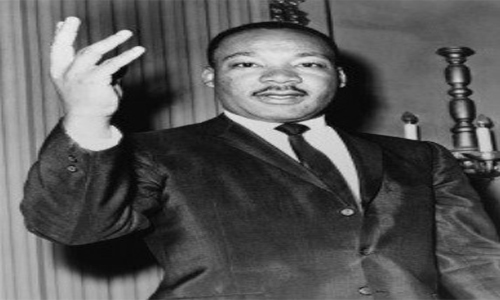 Today is Martin Luther King, Jr. Day.
Today is Martin Luther King, Jr. Day.
I have always admired Dr. King’s life and work. And of course, his words have always motivated and inspired me. In fact, Dr. King (in a very roundabout way) even played a role in how my wife and I got engaged. However, recently it truly hit me what lies at the root of his great legacy. Dr. King was more than a great figure, a great leader, or a great orator. Dr. King was also more than a visionary.
There was something much deeper which caused people to either admire or despise him. Dr. King was a prophet. He was one of our generation’s greatest prophetic voices in the line of the great prophets of the Tanakh – along with such modern giants as Rabbi Dr. Abraham Joshua Heschel (see our post, Praying With Their Feet).
If we look at the prophets of the Tanakh, their role was to call Israel back to covenant faithfulness, and rally against injustice and oppression. For more on this you can read my post, Justice as Holiness, Part II: The Prophets.
In today’s Charismatic Christian circles, people are all too quick to throw around the labels of “prophet” and “prophetic” without understanding what the role and message of a biblical prophet truly was. Often people get caught-up in the sensationalism of the prophet as a messenger of G-d. However, what does it really mean to be a messenger of G-d?
Let’s not forget … Dr. King was a radical and not so different from the prophets of old. Jeremiah was considered a nudnik … Hosea married a harlot … they too were often considered eccentric and controversial.
One of the cardinal lessons of a prophet is that they are not motivated by social protocol, but by the leading and prompting of G-d. They will proclaim their message despite praise or persecution. And that was certainly the case with Dr. King. Many who praised him at one point often despised him at others. His stance on an issue was based on his true convictions, not because he sought to be popular. And what many do not often discuss is the fact that Dr. King was clearly motivated by the voice of G-d.
Dr. King was a great visionary, a great leader, a great man … and a great prophet to our generation. And like the prophets of old, in his own time many heeded the call … yet many more were repulsed. It is only after his death that he is truly appreciated.
Reverend Dr. King was only 39 years old when he was assassinated.
In closing, I’ll just end with a few of the most memorable quotes of Dr. King:
-“Our lives begin to end the day we become silent about things that matter.”
-“Darkness cannot drive out darkness; only light can do that. Hate cannot drive out hate; only love can do that.”
-“Injustice anywhere is a threat to justice everywhere.”
-“Men often hate each other because they fear each other; they fear each other because they don’t know each other; they don’t know each other because they cannot communicate; they cannot communicate because they are separated.”
-”Peace for Israel means security, and we must stand with all our might to protect its right to exist, its territorial integrity. I see Israel as one of the great outposts of democracy in the world, and a marvelous example of what can be done, how desert land can be transformed into an oasis of brotherhood and democracy. Peace for Israel means security and that security must be a reality.”
-“I must make two honest confessions to you, my Christian and Jewish brothers. First, I must confess that over the past few years I have been gravely disappointed with the white moderate. I have almost reached the regrettable conclusion that the Negro’s great stumbling block in his stride toward freedom is not the White Citizen’s Counciler or the Ku Klux Klanner, but the white moderate, who is more devoted to “order” than to justice; who prefers a negative peace which is the absence of tension to a positive peace which is the presence of justice; who constantly says: “I agree with you in the goal you seek, but I cannot agree with your methods of direct action”; who paternalistically believes he can set the timetable for another man’s freedom; who lives by a mythical concept of time and who constantly advises the Negro to wait for a “more convenient season.” Shallow understanding from people of good will is more frustrating than absolute misunderstanding from people of ill will. Lukewarm acceptance is much more bewildering than outright rejection.”
Source: Yinon
